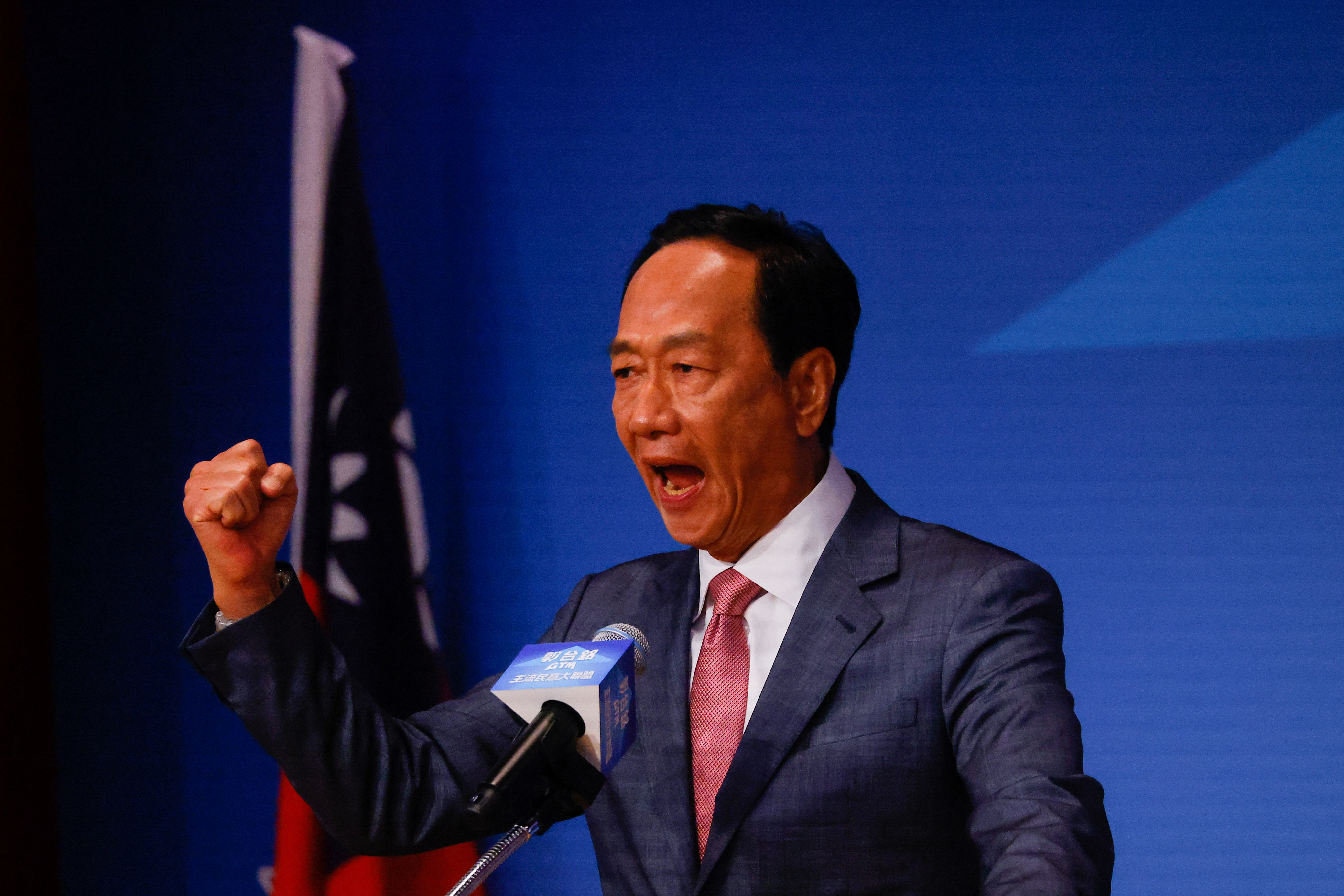
Terry Gou, the founder of Apple supplier Foxconn, announced Monday that he will run for president of Taiwan as an independent candidate, putting an end to months of suspense.
Gou slammed the ruling Democratic Progressive Party during a press conference, saying its actions have “brought Taiwan into the risk of war” with China, which claims the self-ruled island democracy as part of its territory.
“I will definitely not allow Taiwan to become the next Ukraine,” he added.
He said Taiwan also needs new approaches to the economy and other matters at home. “Domestically, the national policy direction is filled with all sorts of mistakes. There’s no way to solve the difficulties of Taiwanese industry and people’s livelihoods,” he said.
Who is Terry Gou?
Gou’s Foxconn, formerly known as Hon Hai Precision Industry Co., is a key Apple supplier with numerous plants in China that make iPhones.
Gou’s ideology is most similar to that of the Kuomingtang, China’s friendly opposition party. The party believes that Taiwan and China are part of the Republic of China. The Kuomingtang dominated China during the early half of the 20th century before they lost a civil war to the Communist Party. They retreated to Taiwan in 1949, where they vowed to one day retake the republic.
Gou has long wished to be president. He ran unsuccessfully in the Kuomingtang primary in 2019 and again this year, but the party chose New Taipei City Mayor Hou Yu-ih as their candidate. Gou stated on his Facebook page in May that he would support Hou’s candidacy.
Gou’s address emphasized unity because he has been accused of splitting the vote, according to Hsiao Hsu-Tsen, a former deputy secretary-general of the presidential office who frequently comments on Taiwanese politics. “It’s a demonstration of his political power.”
Gou must collect public signatures to qualify for the ballot because he is running without the support of a major political party.
That is a high hurdle to clear, as it requires 1.5 percent of Taiwan’s voting population, or approximately 290,000 signatures, according to Yeh-lih Wang, a political science professor at National Taiwan University.
Gou’s vision for Taiwan’s unity
Former Taipei City Mayor Ko Wen-je of the Taiwan People’s Party and current DPP Vice President Lai Ching-te are the other contenders for the January 13 election. Tsai Ing-wen, the current president, is in her second term and cannot run for re-election.
Lai is now the frontrunner, with Ko and Hou trailing in various polls.
Meanwhile, Gou has never received more than 20% support in polls that pit him against the other three candidates, according to Wang, the political science professor.
“He always thought that he could be the one who would unite the opposition,” though that’s unlikely, Wang said. Gou stated that he thought he had something to contribute to the topics that were important to Taiwanese people.
“I have not seen substantive discussions of policy recently, especially on the topics of cross-straits relations (with China), economic development or international relations,” he said.
Gou stated that he would endeavor to bring Taiwanese society together since unity was vital to Taiwan’s future. According to experts, Gou is unlikely to become a frontrunner.
